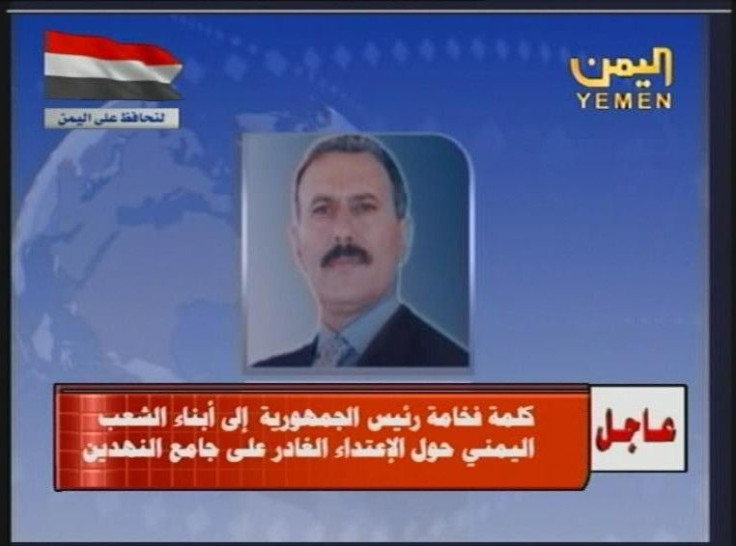U.N. Urges Yemen President to Step Down Immediately

The United Nations Security Council voted unanimously on Friday to condemn Yemen’s bloody crackdown on peaceful protesters and endorsed a regional political initiative aimed at securing President Ali Abdullah Saleh’s commitment to leave office.
The U.N. Security Council's Resolution 2014 calls on the president to immediately accept a deal to transfer power to his deputy to end the escalating violence in the Middle Eastern nation. The resolution strongly condemns the continued human rights violations by the Yemeni authorities, such as the excessive use of force against peaceful protesters.
Saleh has accepted a U.S.-backed transition plan that would have him retire by 2013, and has backed off any other plans to step down. He also has said he would not step down unless his archrivals, army Gen. Ali Mohsen al-Ahmar and tribal leader Sheikh Sadeq al-Ahmar, also step aside.
There is a proposal by the Gulf Cooperation Council that would grant immunity to Saleh and his inner circle if they agree to step aside. This was sharply criticized by Yemeni activist Tawakkul Karman, who won the 2011 Nobel Peace Prize this month.
The U.N. High Commissioner for Human Rights also opposed an amnesty for serious crimes.
International law prohibits the use of amnesties that prevent the prosecution of individuals for war crimes, genocide, crimes against humanity, or gross violation of human rights,” said Rupert Colville, spokesman for the commissioner.
Today the international community sent a united and unambiguous signal to President Saleh that he must respond to the aspirations of the Yemeni people by transferring power immediately, read a statement issued by the White House.
© Copyright IBTimes 2024. All rights reserved.











